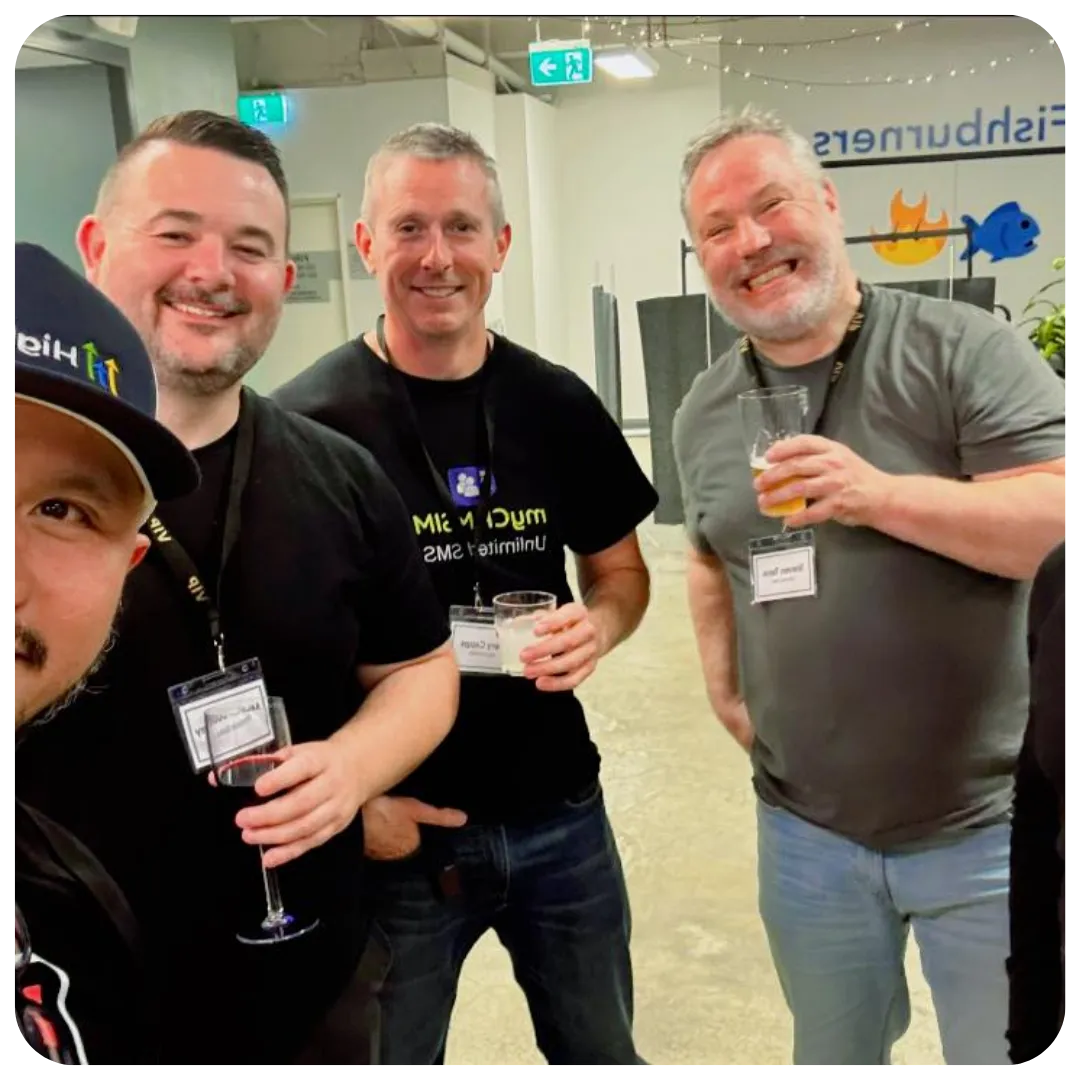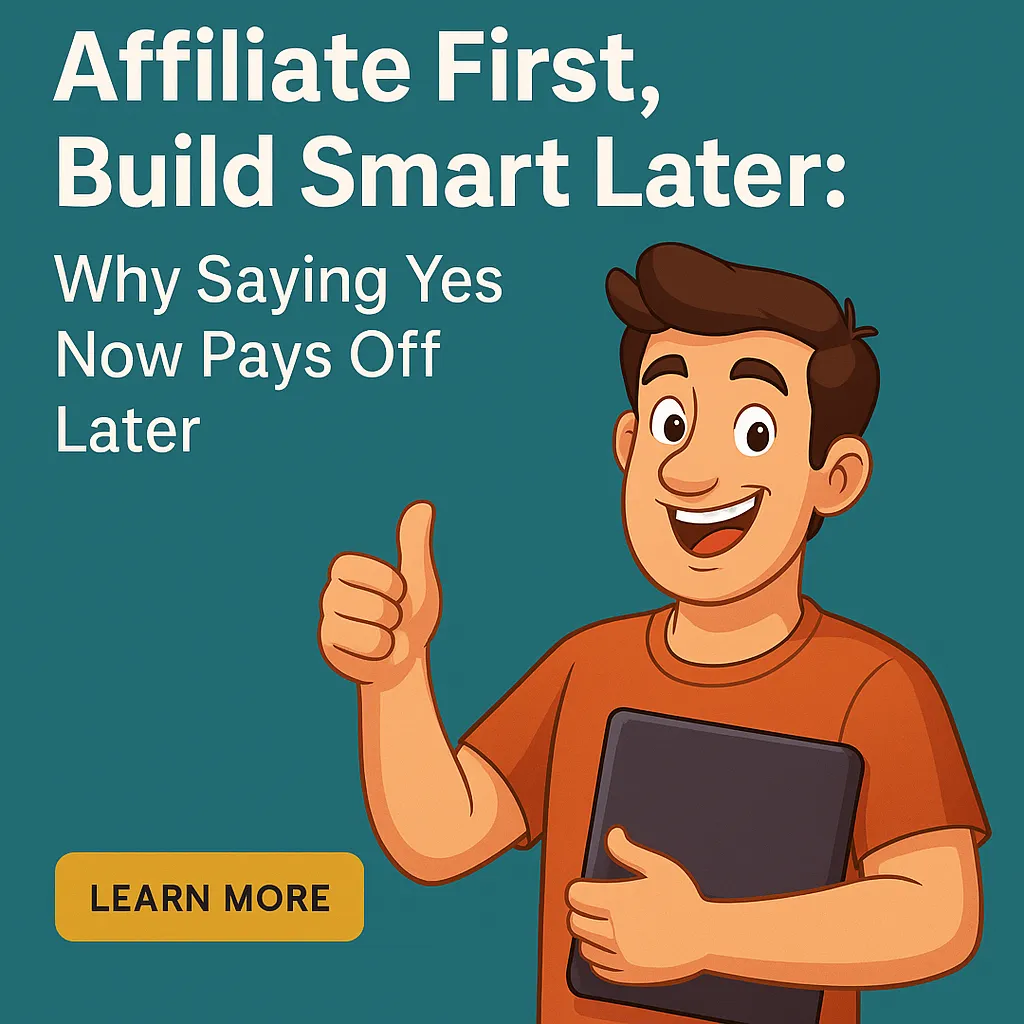
Check out my Blogs


Affiliate First, Build Smart Later: Why Saying Yes Now Pays Off Later
Affiliate First, Build Smart Later: Why Saying Yes Now Pays Off Later
Let’s get this out of the way:
Slapping your logo on a pre-built SaaS template and calling it a business? That’s not it. That’s not your shortcut to freedom, fortune, or that smug moment when you say “I’m fully booked” with a wink.
But you know what is worth doing early on, even before you’ve nailed your positioning or built a shiny tech stack?
Signing up as an affiliate.
Yup. Even if you're not ready to launch your own software product or roll out a “done for you” offer, getting on board as someone’s affiliate costs you nothing—and it might just be the smartest move you’ll make while you’re still figuring the rest out.
So let’s unpack why this “affiliate-first” mindset makes total sense, and how it plays beautifully into the longer game of building a successful, sustainable agency.
The Low-Risk, High-Upside Move Everyone Skips
For some reason, folks treat affiliate programs like they’re a side hustle or a backup plan.
They’re not.
They’re a front door to the world you want to be in.
Signing up as someone’s affiliate gets you in the room, fast. It:
Helps you build relationships with serious players in your space
Gives you behind-the-scenes access to how they market, sell, and support
And earns you commissions while you’re still setting up your own offer
It’s like renting out your driveway before you’ve built the house.
No harm. No risk. But you’re already monetising the land.
“But I Don’t Want to Be Just an Affiliate…”
Cool, you won’t be. And no one said you have to stop there.
The goal isn’t to stay an affiliate forever. It’s to start there while you sharpen your niche, refine your value proposition, and start crafting your own IP.
A smart affiliate relationship can fund the development of your actual product. It can validate your niche. It can keep money coming in while you experiment.
And let’s be honest: if you're serious about building your own platform, what better education than selling and supporting someone else's first?
You’re learning what works—without having to build it all from scratch just yet.
White Label Isn’t Magic (But It Can Be Smart)
Let’s talk about white-labelling for a sec.
If you think you’re going to slap a logo on a dashboard and rake in recurring revenue while sipping cocktails from a beach in Bali… I'm sorry, but you’ve been watching too many YouTube ads.
White label works—but only if:
You actually understand your clients’ pain points
You’re customising workflows, automation, or onboarding that solves those pains
You’ve got a plan to scale beyond a cookie-cutter solution
The real value is in the IP you wrap around it. The guidance, the automation, the support—that’s what people pay for.
But guess what? While you’re working toward that, your affiliate status is already building trust, generating leads, and giving you passive income.
Affiliate First, Custom Build Later
Here’s a smarter path nobody talks about:
Start as an affiliate. Build the relationship. Learn what works.
Use commissions to fund your own offer. Invest in custom snapshots, workflows, or onboarding processes.
Create your own version of value. Layer in your niche expertise or vertical-specific IP.
Launch when it’s actually ready. Not when you’ve duct-taped a dashboard and crossed your fingers.
This way, you avoid shiny object syndrome, build with confidence, and earn while you learn.
Affiliate Programs Are Relationship Builders (Not Just Money Machines)
Another overlooked benefit?
Affiliate status opens doors.
Want to partner with someone? Having skin in the game matters. Want early access to beta features, custom onboarding, or revenue share deals? You’d better believe being an affiliate helps.
You go from “cold DM” to “warm lead” real fast when you’re already part of the ecosystem.
And if you’ve got influence, a growing audience, or just happen to be a decent human who follows up with leads—you’ll be seen as an asset, not a moocher.
Final Thought: Something Beats Nothing Every Time
The biggest mistake? Waiting until everything’s “perfect.”
There’s a whole tribe of agency owners out there tweaking their funnel headers for 9 months straight and wondering why they’ve got zero cash flow.
Perfection paralysis is the real business killer.
So here’s your permission slip:
Don’t overthink it. Start somewhere. Start now.
Affiliate first. Build smart later.
You’re not selling out. You’re selling in—to your future business.
Site happily made by Ben Stützner

